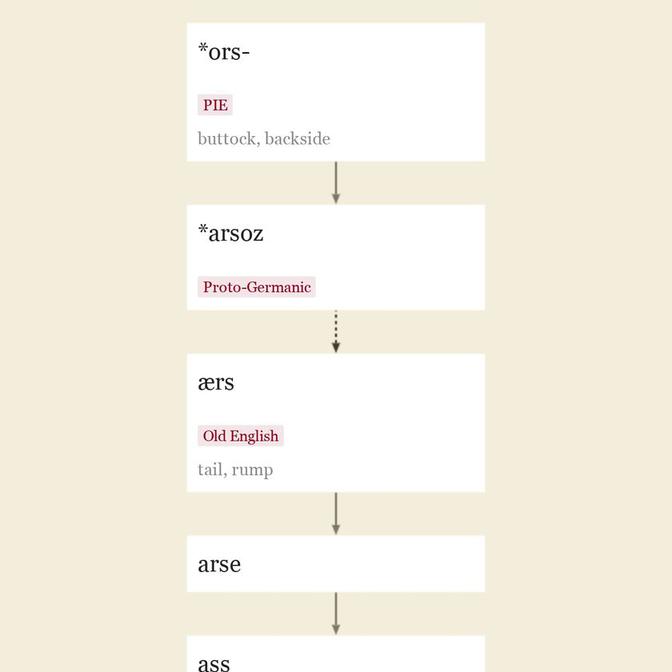bad-ass n.
also badass, "
Entries linking to bad-ass
c. 1300, "
The orig. word, AS. bæddel, ME. baddel, on account of its sinister import, is scarcely found in literature, but, like other words of similar sense, it prob. flourished in vulgar speech as an indefinite term of abuse, and at length, divested of its original meaning, emerged in literary use as a mere adj., badde, equiv. to the older evil. [Century Dictionary, 1897]
Comparable words in the other Indo-European languages tend to have grown from descriptions of specific qualities, such as "
Comparative and superlative forms badder, baddest were common 14c.-18c. and used as recently as Defoe (but not by Shakespeare), but yielded to comparative worse and superlative worst (which had belonged to evil and ill).
The meaning "
These are the men who do most of the killing in frontier communities, yet it is a noteworthy fact that the men who are killed generally deserve their fate. [Farmer and Henley, "Slang and Its Analogues"]
*Persian has bad in more or less the same sense as the English word, but this is regarded by linguists as a coincidence. The forms of the words diverge as they are traced back in time (Persian bad comes from Middle Persian vat), and such accidental convergences exist across many languages, given the vast number of words in each and the limited range of sounds humans can make to signify them. Among other coincidental matches with English are Korean mani "

"
Indirect evidence of the change from arse to ass can be traced to 17c. By 1680s arse was being pronounced to rhyme with "
I must to the barber's, mounsieur; for me thinks I am marvellous hairy about the face; and I am such a tender ass, if my hair do but tickle me, I must scratch. [Bottom]
By 1785 polite speakers were avoiding ass in the "
The meaning "
He snoighed up his nose as if th' cheese stunk, eyed me wi an air o contempt fro my shoon to my yed, un deawn ogen fro my yed to my shoon ; un then pushin th' brade un cheese into my hont ogen, he says "Take your vile bread and cheese and stick it up your coat sleeve, and be demmed to you. Do you think I want your paltry grub?" Un then, turnin on his heel, he hurried into th' perk. ["Bobby Shuttle un His Woife Sayroh's Visit to Manchester," 1857]
updated on October 10, 2017